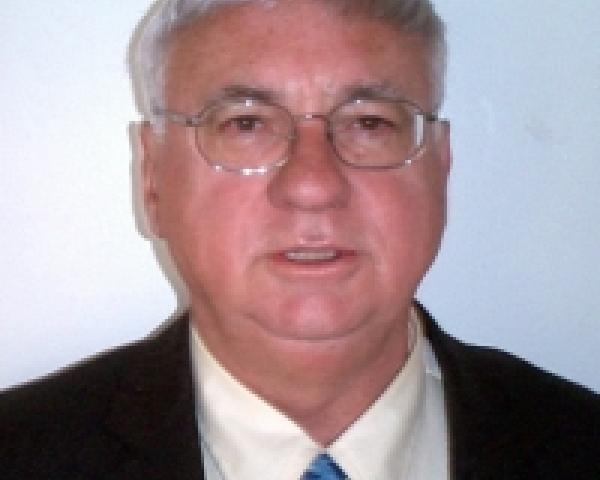The 2016 HITLAB Innovators Summit and World Cup was held once again at Columbia University in New York. There were 74 technology companies that entered the competition, and five finalists were selected. All of these startups that entered the competition and others that help sponsor this annual event have the potential to help improve the way healthcare is delivered now and in the future through innovative technologies.
Near Infrared Imaging (NII), based in Wrentham, MA, has developed a technology for the enhanced visualization of veins. This technology, called the Vein-Eye, is a hands-free, non-invasive hospital cart that provides real-time imaging of the veins below the surface of the skin. Michael Feeney, president of Near Infrared Imaging, said, “Vein punctures can be very painful, especially for difficult patients who may be obese, very young, very old and/or have dark skin.” Multiple attempts to puncture a vein result in a very negative experience for both the patient and the provider.
The first specific successful application of the Vein-Eye is varicose vein treatment. The Vein-Eye is also targeting patients receiving dialysis, patients with severe burns, patients with Thalassemia Major Disorder and patients undergoing FLAP surgery, which is a technique involving lifting a tissue from a donor site to a recipient site. Roughly 25% of all patients, regardless of healthcare setting or illness, have delayed care due to the inability of a healthcare provider to establish an IV access to the patient’s vein.
NII is also working to develop a patented technology that will detect real-time bleeding in the brain at the scene of the injury.
MedLogiq, based in Hazlet, NJ is bringing technology originally developed and used by the automotive and aviation industries to testing and monitoring product quality and performance in the medical device marketplace. This proven technology comes at a time of increased concerns about product defects in a wide range of medical-devices, resulting in serious injuries to patients and massive product liability lawsuits. The FDA has expressed serious concerns with these adverse events and has significantly increased actions against medical device manufacturers.
See also: 5 Apps That May Transform Healthcare
Bill Acevedo, the CEO of MedLogiq, said: “Our solution provides value from proof of concept through end of life for medical device manufacturers and any other stakeholder.” Acevedo went on to say; “Medical device manufacturers don’t know what they don’t know.” There are many key questions that need to be asked and independently verified about medical devices. Is there a design defect? Was it built correctly? Is there a potential for patient harm or product liability? What data points are needed for continued monitoring of quality outcomes?
Jim Zerka, CFO, said: “Our main objective is to improve patient care and outcomes by reducing adverse events.” Acevedo closed his presentation by stating that this quality control technology was used by Ford to ensure manufacturing quality of every car coming off their assembly lines worldwide.
MedLogiq, along with their technology partner MAHLE Test Systems, has been granted access to the intellectual property for the generic infusion pump (GIP) from the PRECISE Center at the University of Pennsylvania to integrate their solution as the “maintenance processor” to accurately measure and report device performance. The GIP was built by the PRECISE Center to the FDA specifications to enhance safety monitoring, performance testing and event data recording capabilities for infusion pumps designed to administer fluids and medications to patients in a precise manner.
Green Sun Medical, based in Fort Collins, CO is revolutionizing the treatment of adolescent idiopathic scoliosis (AIS). AIS is a condition resulting from a curvature and rotational deformity of the spine. This condition develops in 3% of children under the age of 16. This results in the incorrect rotation of the spine and creates a prominent rib hump in these children. Most patients are diagnosed because of this rib hump, and when it progresses past 30 degrees they are prescribed a traditional brace. Current braces involve a 40-year-old technology, which is a rigid brace that the child must wear as much as 23 hours a day. Needless to say, these traditional braces are terribly uncomfortable and can create pressure sores, also known as bedsores or pressure ulcers, that can result in severe infections and must be worn until the child becomes skeletally mature. If the condition progresses past 50 degrees, surgical intervention is required, with the average cost exceeding $150,000. In addition, surgical intervention results in a 50% complication rate over the patients' lifetimes.
This new solution is transforming spinal bracing technology and treatment options for spinal deformities through the use of a comfortable dynamic brace with built-in sensors linked to an iPad that provides physicians and family members comprehensive brace pressure information and compliance data in real time through a “report card.” This report card allows for corrections and adjustments to the brace. This technology will prevent children from the pain and suffering of antiquated braces and prevent needless surgeries.
In addition, Green Sun Medical has created a new dynamic brace to help both adults and children with Kyphosis. Kyphosis is a forward rounding of the back and can result in a much exaggerated and very painful rounding. This can occur to anyone at any age but is most common in elderly women.
Green Sun Medical won the award at the Wilson Sonsini Goodrich & Rosati Medical Device Conference in June 2016 as the #1 new medical device in the U.S.
EarID, based in Cambridge, MA, screens and diagnoses ear infections with higher sensitivity and specificity than existing clinical methods by using new 3D imaging and data analytics on a cloud-based platform. EarID assists in ear infections monitoring and management by minimizing unnecessary antibiotic prescriptions and time lost from work by parents and from school by children. Ear infections are the #3 reason for absence from school by children and most likely cause a parent to also miss work.
See also: AI: The Next Stage in Healthcare
Anshuman Das, a post-doctoral associate at the
MIT Media Lab and MIT Tata Center for Technology+ Design, noted that the primary screening tools for ear infections has not changed since the 1800s, and his research has found that accurate diagnosis of ear infections is not currently met in pediatric care. The current diagnosis of ear infections relies on visual inspection of the eardrum, which is performed by a device called the otoscope, which gives very little quantitative information about the actual health of the ear. EarID overcomes these challenges by integrating the conventional otoscope with a structured illumination system that greatly enhances optical and anatomical information about a patient's ear drum. In addition, the technology with enhanced diagnostic capabilities helps address the overprescribing of antibiotics, which is a well-known public health crisis. (https://tatacenter.mit.edu/portfolio/earid-smart-ear-imaging/)
UE LIfeSciences, based in Philadelphia, PA, is on a mission to make effective breast cancer screening accessible in the developing world and was the winner of the 2016 World Cup. Matthew Campisi, CTO and co-founder, noted that 50% of the breast cancer diagnosed today is in the developing world, with 70% in the Pacific Rim/Southeast Asia, where two-thirds of cases are first diagnosed in stage 3. The company's technology is currently being used in India, where the death rate from breast cancer is twice that of the U.S. This technology provides a battery-powered handheld wireless device that can store and send data and is accessible anywhere in the world. It is painless and radiation-free and allows for early detection of breast cancer.
UE Life Sciences' first product, NoTouch BreastScan, is an FDA-cleared device and in a recent clinical trial detected early stage breast cancer with 87% accuracy. The second product, iBreastExam, is a handheld breast scanner that uses a smart phone as its monitor. The development of this technology was funded by the PA Department of Health to address the fact that 90% of the developing world and millions of women do not have access to breast cancer early detection.
Exhibitors at the HITLAB Summit included several other healthcare technology companies such as
AdhereTech, based in New York, which has invented a smart wireless pill bottle. AdhereTech was the winner of the first HITLAB World Cup in 2013. Its “smart” pill bottles are being used by patients in pharmaceutical and research engagements and can collect and send data in real time. This system automatically analyzes information, and, if the patient misses a required dose, he receives customized alerts and targeted interventions by cell phone, text messages, etc. This amazing technology requires zero patient setup and recharges just like a cell phone and lasts as long as 5 years. Josh Stein, the CEO, told me the entire purpose is “to see that patients are taking the correct medication at the right time. This is particularly critical for patients diagnosed with cancer.” (www.adheretech.com)
Citus Health, also based in New York, has created a solution named “Call Bell” to help revolutionize how home infusion companies connect with patients. Melissa Kozak, CEO, told me she invented this technology after spending seven years as an on-call nurse for a home infusion company “to help keep my patients out of the hospital.” Kozak experienced firsthand how home infusion patients often needlessly face tremendous anxiety along with many potential adverse events such as delays in receiving antibiotics, chemotherapy, nutrition etc. when patients’ home infusion care process breaks down. The current system typically involves after-hours call centers that are inefficient and typically provide an answering service, not a certified nursing expert. Call Bell allows patients to get answers quickly in real time to address IV support questions and troubleshooting along with answers to questions like, when will my nurse arrive, or when is my next delivery? In addition, this technology provides home infusion companies with accurate patient home infusion supply counts with vastly improved patient support and communications. Call Bell was designed to address the Holy Grail of healthcare, better patient care and better outcomes at a reduced cost.
See also: Consumer-Friendly Healthcare Model
It was a real pleasure once again to meet so many amazing people developing state-of-the art solutions for an array of global public health issues through new technology. I wish them all continued success and look forward to the 2017
HITLAB Innovators Summit, Nov. 28 -30, 2017 held once again at Columbia University.


